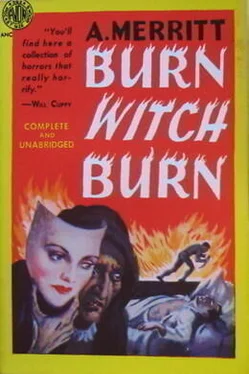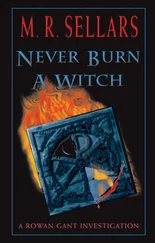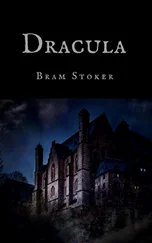Curiously enough, Ricori was the least affected of the three of us. My own flesh had crept. McCann, although he had never heard the doll–maker's voice, was greatly shaken. And it was Ricori who broke the silence.
"You are sure the girl is dead?"
"There is no possible doubt of it, Ricori."
He nodded to McCann: "Carry her down to the car."
I asked: "What are you going to do?"
He answered: "Kill the witch." He quoted with satiric unctuousness: "In death they shall not be divided." He said, passionately: "As in hell they shall burn together forever!"
He looked at me, sharply.
"You do not approve of this, Dr. Lowell?"
"Ricori, I don't know—I honestly do not know. Today I would have killed her with my own hands but now the rage is spent. What you have threatened is against all my instincts, all my habits of thought, all my convictions of how justice should be administered. It seems to me— murder!"
He said: "You heard the girl. Twenty in this city alone killed by the dolls. And fourteen dolls. Fourteen who died as Peters did!"
"But, Ricori, no court could consider allegations under hypnosis as evidence. It may be true, it may not be. The girl was abnormal. What she told might be only her imaginings—without supporting evidence, no court on earth could accept it as a basis for action."
He said: "No—no earthly court—" He gripped my shoulders. He asked: "Do you believe it was truth?"
I could not answer, for deep within me I felt it was truth. He said:
"Precisely, Dr. Lowell! You have answered me. You know, as I know, that the girl did speak the truth. You know, as I know, that our law cannot punish the witch. That is why I must kill her. In doing that, I, Ricori, am no murderer. No, I am God's executioner!"
He waited for me to speak. Again I could not answer.
"McCann"—he pointed to the girl—"do as I told you. Then return."
And when McCann had gone out with the frail body in his arms, Ricori said:
"Dr. Lowell—you must go with me to witness this execution."
I recoiled at that. I said:
"Ricori, I can't. I am utterly weary—in body and mind. I have gone through too much today. I am broken with grief—"
"You must go," he interrupted, "if we have to carry you, gagged as the girl was, and bound. I will tell you why. You are at war with yourself. Alone, it is possible your scientific doubts might conquer, that you would attempt to halt me before I have done what I swear by Christ, His Holy Mother, and the Saints, I shall do. You might yield to weariness and place the whole matter before the police. I will not take that risk. I have affection for you, Dr. Lowell, deep affection. But I tell you that if my own mother tried to stop me in this I would sweep her aside as ruthlessly as I shall you."
I said: "I will go with you."
"Then tell the nurse to bring me my clothing. Until all is over, we remain together. I am taking no more chances."
I took up the telephone and gave the necessary order. McCann returned, and Ricori said to him:
"When I am clothed, we go to the doll–shop. Who is in the car with Tony?"
"Larson and Cartello."
"Good. It may be that the witch knows we are coming. It may be that she has listened through the girl's dead ears as she spoke from her dead throat. No matter. We shall assume that she did not. Are there bars on the door?"
McCann said: "Boss, I ain't been in the shop. I don't know. There's a glass panel. If there's bars we can work 'em. Tony'll get the tools while you put on your clothes."
"Dr. Lowell," Ricori turned on me. "Will you give me your word that you will not change your mind about going with me? Nor attempt to interfere in what I am going to do?"
"I give you my word, Ricori."
"McCann, you need not come back. Wait for us in the car."
Ricori was soon dressed. As I walked with him out of my house, a clock struck one. I remembered that this strange adventure had begun, weeks ago, at that very hour…
I rode in the back of the car with Ricori, the dead girl between us. On the middle seats were Larson and Cartello, the former a stolid Swede, the latter a wiry little Italian. The man named Tony drove, McCann beside him. We swung down the avenue and in about half an hour were on lower Broadway. As we drew near the street of the doll–maker, we went less quickly. The sky was overcast, a cold wind blowing off the bay. I shivered, but not with cold.
We came to the corner of the doll–maker's street.
For several blocks we had met no one, seen no one. It was as though we were passing through a city of the dead. Equally deserted was the street of the doll–maker.
Ricori said to Tony:
"Draw up opposite the doll–shop. We'll get out. Then go down to the corner. Wait for us there."
My heart was beating uncomfortably. There was a quality of blackness in the night that seemed to swallow up the glow from the street lamps. There was no light in the doll–maker's shop, and in the old–fashioned doorway, set level with the street, the shadows clustered. The wind whined, and I could hear the beating of waves on the Battery wall. I wondered whether I would be able to go through that doorway, or whether the inhibition the doll–maker had put upon me still held me.
McCann slipped out of the car, carrying the girl's body. He propped her, sitting in the doorway's shadows. Ricori and I, Larson and Cartello, followed. The car rolled off. And again I felt the sense of nightmare unreality which had clung to me so often since I had first set my feet on this strange path to the doll–maker…
The little Italian was smearing the glass of the door with some gummy material. In the center of it he fixed a small vacuum cup of rubber. He took a tool from his pocket and drew with it a foot–wide circle on the glass. The point of the tool cut into the glass as though it had been wax. Holding the vacuum cup in one hand, he tapped the glass lightly with a rubber–tipped hammer. The circle of glass came away in his hand. All had been done without the least sound. He reached through the hole, and fumbled about noiselessly for a few moments. There was a faint click. The door swung open.
McCann picked up the dead girl. We went, silent as phantoms, into the doll–shop. The little Italian set the circle of glass back in its place. I could see dimly the door that opened into the corridor leading to that evil room at the rear. The little Italian tried the knob. The door was locked. He worked for a few seconds, and the door swung open. Ricori leading, McCann behind him with the girl, we passed like shadows through the corridor and paused at the further door.
The door swung open before the little Italian could touch it.
We heard the voice of the doll–maker!
"Enter, gentlemen. It was thoughtful of you to bring me back my dear niece! I would have met you at my outer door—but I am an old, old woman and timid!"
McCann whispered: "One side, boss!"
He shifted the body of the girl to his left arm, and holding her like a shield, pistol drawn, began to edge by Ricori. Ricori thrust him away. His own automatic leveled, he stepped over the threshold. I followed McCann, the two gunmen at my back.
I took a swift glance around the room. The doll–maker sat at her table, sewing. She was serene, apparently untroubled. Her long white fingers danced to the rhythm of her stitches. She did not look up at us. There were coals burning in the fireplace. The room was very warm, and there was a strong aromatic odor, unfamiliar to me. I looked toward the cabinets of the dolls.
Every cabinet was open. Dolls stood within them, row upon row, staring down at us with eyes green and blue, gray and black, lifelike as though they were midgets on exhibition in some grotesque peepshow. There must have been hundreds of them. Some were dressed as we in America dress; some as the Germans do; some as the Spanish, the French, the English; others were in costumes I did not recognize. A ballerina, and a blacksmith with his hammer raised…a French chevalier, and a German student, broadsword in hand, livid scars upon his face…an Apache with knife in hand, drug–madness on his yellow face and next to him a vicious–mouthed woman of the streets and next to her a jockey…
Читать дальше










